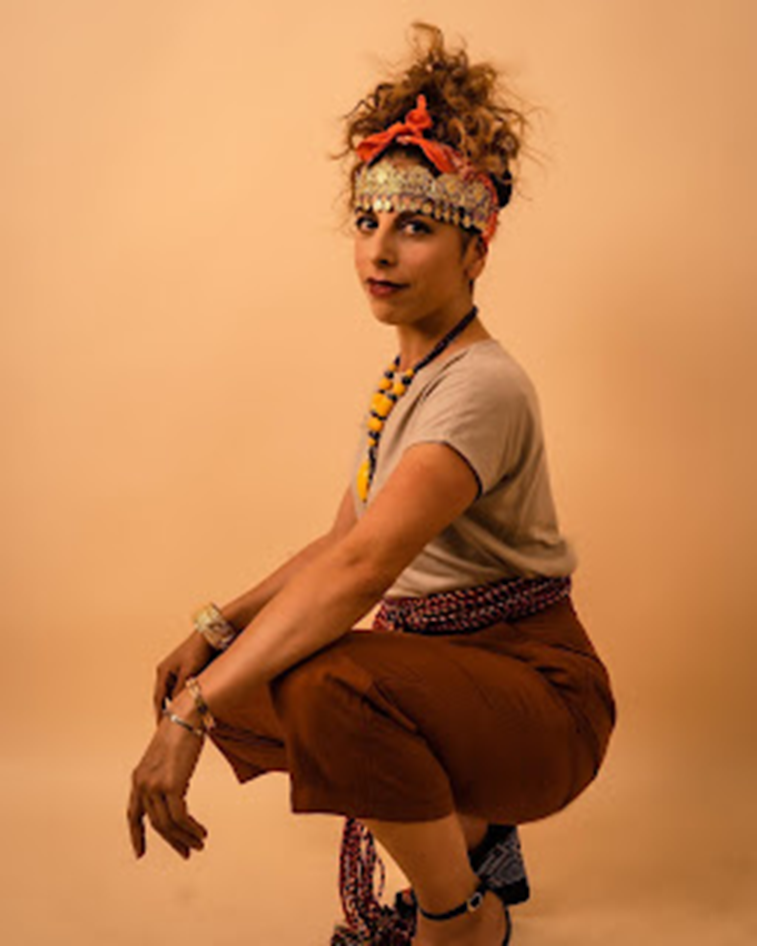America, we are not Berbers, we are Amazighs

For America, we are not barbarians, we are Amazighs
This is how Monia Al-Munawar expressed her origins and her Amazigh people
I am not a "challah", nor am I a "berber", I am a Amazigh

"I am not Berber, I am Amazigh." This is what I must now say to various people in the West when I refer to the indigenous tribes of North Africa. I find the motivation to do this because most people are not familiar with the term Amazigh, especially in the United States where I live. The word Amazigh is more well known, which can refer to "people with a strange tongue". When I say I am Amazigh in various Western contexts, and explain where the Amazighs come from, I am often corrected by saying, "Oh, you mean Amazigh."
This unwelcome miscorrection is what Western knowledge does to us indigenous peoples of the African continent. It hides our truth, our narratives, our identities, and our stories. It reduces us to "what the West calls us". When we read some anthropological texts about non-Amazighs and Amazighs alike in the West, knowledge becomes productive in Western contexts, and becomes, inarguably, valid. This very knowledge reduces the Amazighs to people with a strange dialect. It hides their ethnic and cultural agency. Therefore, the term Amazigh fundamentalizes Amazighs in relation to these foreigners, allowing for the loss of the self-identifying Amazigh identity. This normalization is not new, as a North African Amazighe woman, I have long been working on the recognition of my Amazigh identity, starting from the time I lived in Morocco.

"I am not Chalha, I am Amazigh " "I am not Chalha, I am Amazigh ". This is what I could not say to a young woman some thirteen years ago in Morocco. I was visiting a young couple who were friends of my friend, newly appointed teachers at a secondary school of physical education in a small town in the south of Morocco. In this small, Amazigh -speaking city, the mother tongue is more visible. Because the Amazigh language is not often heard in the big cities of Morocco. One hears more of darija, the diverse Arabic spoken in Morocco. This couple consider themselves Kazawi, and come from the so-called "cosmopolitan" city of Casablanca where many young people strive to be Western or associated with the West. Casablanca is a city of more than three million inhabitants where you see various foreign companies, which means that many young Moroccans must speak French, which makes working in these companies a mandatory requirement for the language. Casablanca is not a romantic movie about a couple who fall in love in an American café during the French colonization of Morocco. Rather, it is a city where many people seek to make a living in the largest and most expensive city in Morocco. However, although Casablanca often presents a struggle, it often assumes an air of superiority, in the sense that those who live in Casablanca are somehow better than others in Morocco.

I vividly remember the time I visited this couple about thirteen years ago in a small town called Tinghir south of the high Atlas Mountains in Morocco. This couple was very welcoming and eager to show us the beautiful scenery this hometown had to offer. However, I couldn't help but notice the way this couple referred to the indigenous people of the city. They would make comments such as: “Dealing with the Shalouh is very difficult; they are very stubborn people.” (Shalloh is the plural of challah.) The Arabic word for “challah,” “challah” in the feminine form, challah in the plural, comes from the verb challah, challah. One of the meanings of the word refers to the act of completely removing oneself. In the passive form, choulliha chouliha means that a person has been deprived of everything they possess due to an encounter with thieves or thieves.

The couple often laughed when they uttered the phrase, "Shlouh is very difficult to work with." Shalouh "Shaloh" in the plural form are the ones who deposed themselves. In this case, the Amazighs are portrayed as "less than", "not having enough decency". The laughter accompanying the phrase made the couple seem somehow upright and superior to the townspeople. They created this distance between themselves and the city, which was unusually present. One night at the couple's house when we were getting ready to go out to dinner, I put on the Aboriginal jewelry my mother had given me. The wife looks at him and says: "Munya, the shalha" (Munya, the little Amazigh girl). I didn't know what to do with that comment. However, I remember that my feelings were not positive. The reduction of the word shalha to shaliha exacerbated the matter, as the structure shalha in Arabic denotes something smaller in quantity.
Written by: Dr. Munya Al-Munawar, Member of the ICO Board of Directors
Translated into Arabic by: Khaled Taifras
Source: websites

